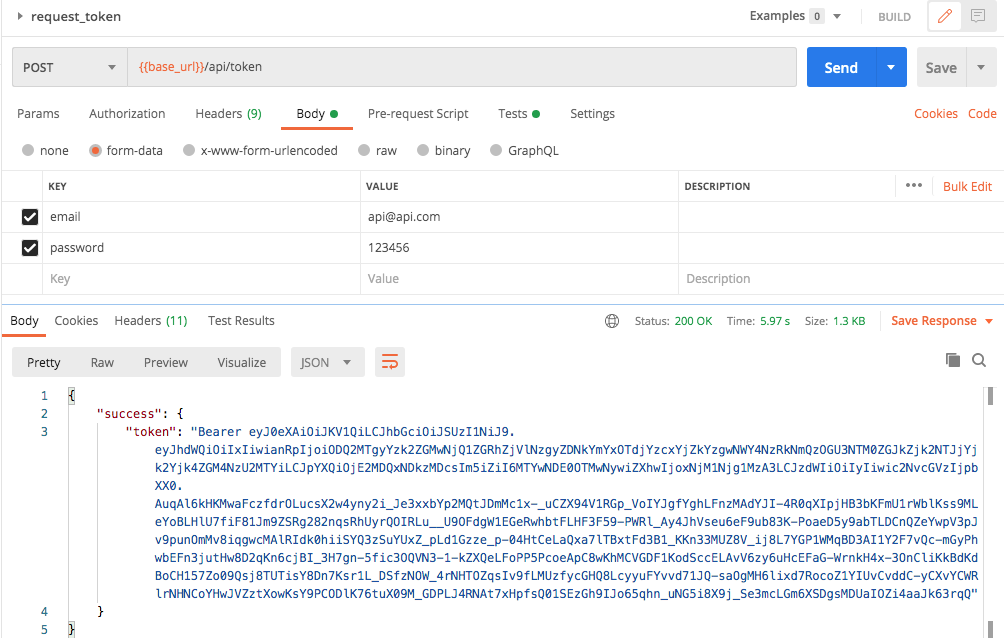This is an API REST made with laravel 8.0, passport and l5 repository. The laravel Framework give us an elegant and organized way to write codes else we use the passaport tool to get an secure and smart authentication. For the last is the l5 repository that automate a lot of important tasks as create in a only command a complete CRUD with wondeful possibilities like filter your queries by passing parameter from requests.
We can use this api in few moments going through some steps.
- Clone or download this repository to your project folder.
- Run composer install on root of this project.
- Setup your .env file (check db setup).
- Run php artisan init:project on your terminal and follow the steps to create your first user.
That`s ready to use!!
To get the token auth we need to send a post to your-api-addr/api/token posting in your form data the user data. The form-data parameters are: POST http://your-api-addr/api/token
email: "useremail@domain.com"
password: "userpassword"
That`s return the token to make your api requests
See the image:

Now that you have the token lets create the first CRUD.
-
Run php artisan make:entity name-of-entity and follow the steps You have now created your chosen features and can now take advantage of them.
-
Go to database/migrations folder and find the created migrations. Edit it with giving the names and types for tables. See this exemple:
public function up() { Schema::create('flights', function (Blueprint $table) { $table->id(); $table->string('user_name'); $table->string('user_email'); $table->timestamps(); }); }
-
Run php artisan migrate
Now the artisan created your table and fields.
When you runned the make:entity command you saw that created Controller, Model(Entities Folder), Resquest(Http/Resquests folder) and other files that respect the name you choiced for that.
Maybe you`ll need to open on Request folder the files created and change the returned parameters on authorize method to true as exemple: Old:
public function authorize()
{
return false;
}
New:
public function authorize()
{
return true;
}
On routes/api.php file, create inside the middleware function your api routes.
Route::middleware('auth:api')->group(function(){
Route::resources([
'user' => UserController::class,
'testes' => EmersonTestesController::class,
]);
});
You can see more about that here: https://laravel.com/docs/8.x/routing
Now you can send you requests for defined controllers. Just for clarify. Inside your created controller you will see the methods:
- index (GET).
- store (POST)
- show (GET) - use endpoint/{id}
- edit (GET) - use endpoint/{id}/edit
- update (PUT/PATCH) - use endpoint/{id}
- destroy (DELETE) - use endpoint/{id}
